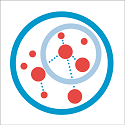
The Global report on urban health: equitable, healthier cities for sustainable development, 2016 presents new data on the health of urban residents from nearly 100 countries, updating the first joint WHO-UN Habitat global report on urban health titled Hidden cities: unmasking and overcoming health inequities in urban settings. The new Global Report deconstructs the complex challenges of health and health inequity in cities everywhere. It presents a special analysis on the impact of persistent urban health inequities on achievement of the Millennium Development Goals. It sets a baseline for the new global health and development agenda in the Sustainable Development Goals and Universal Health Coverage. It also presents evidence that in cities, progress in health depends not only on the strength of health systems, but also on shaping healthier urban environments. This Global Report presents practical, proven solutions for working across sectors to tackle these 21st century health challenges. It presents examples of effective actions by cities and nations around the world and the successes that have been achieved.
For more information
A new publication prepared by the WHO Kobe Centre, “Medical and Assistive Health Technology: Meeting the Needs of Aging Populations”, was published by the The Gerontologist.
Purpose of the Study:
To identify policy gaps in the delivery and availability of assistive health technology (AHT) and medical devices (MD) for aging populations, particularly in low- and middle-income countries (LMICs).
Design and Methods:
The findings presented in this paper are the results of several narrative overviews. They provide a contextual analysis of the conclusions and evidence from WHO commissioned research and expert consultations in 2013 and 2014, as well as a synthesis of literature reviews conducted on AHT and MD.
Results:
Practical, life-enhancing support for older people through AHT, MD, and related health and social services is a neglected issue. This is particularly so in LMICs where the biggest increases in aging populations are occurring, and yet where there is commonly little or no access to these vital components of healthy aging.
Implications:
Health technologies, especially medical and assistive health technology, are essential to ensure older people’s dignity and autonomy, but their current and potential benefits have received little recognition in LMICs. Viewing these technologies as relevant only to disabled people is an inadequate approach. They should be accessible to both older adults with disabilities and older adults with functional limitation. Many countries need much greater official awareness of older adults’ needs and preferences. Such attitudinal changes should then be reflected in laws and regulations to address the specificities of care for older people

